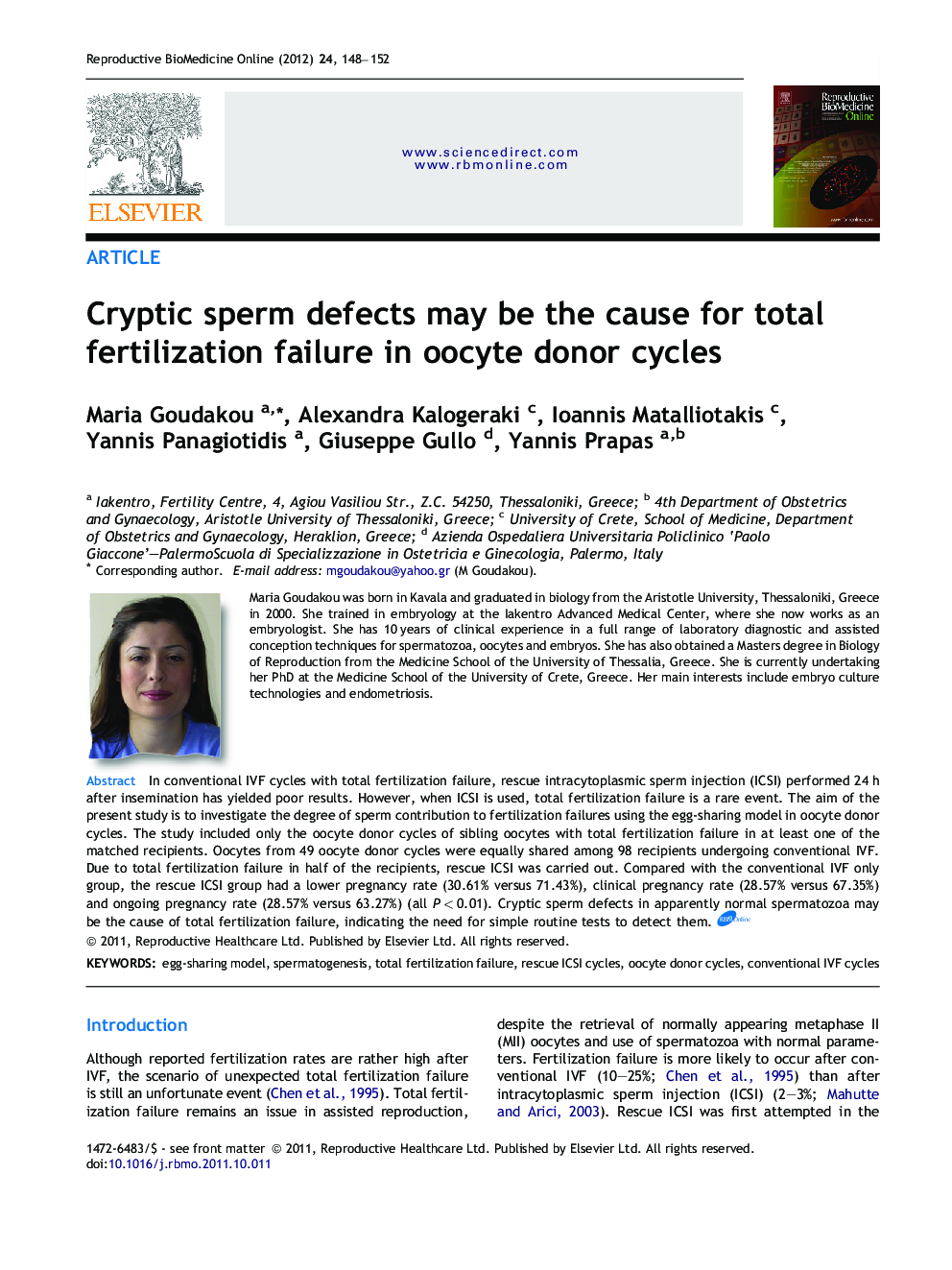| Article ID | Journal | Published Year | Pages | File Type |
|---|---|---|---|---|
| 3971170 | Reproductive BioMedicine Online | 2012 | 5 Pages |
In conventional IVF cycles with total fertilization failure, rescue intracytoplasmic sperm injection (ICSI) performed 24 h after insemination has yielded poor results. However, when ICSI is used, total fertilization failure is a rare event. The aim of the present study is to investigate the degree of sperm contribution to fertilization failures using the egg-sharing model in oocyte donor cycles. The study included only the oocyte donor cycles of sibling oocytes with total fertilization failure in at least one of the matched recipients. Oocytes from 49 oocyte donor cycles were equally shared among 98 recipients undergoing conventional IVF. Due to total fertilization failure in half of the recipients, rescue ICSI was carried out. Compared with the conventional IVF only group, the rescue ICSI group had a lower pregnancy rate (30.61% versus 71.43%), clinical pregnancy rate (28.57% versus 67.35%) and ongoing pregnancy rate (28.57% versus 63.27%) (all P < 0.01). Cryptic sperm defects in apparently normal spermatozoa may be the cause of total fertilization failure, indicating the need for simple routine tests to detect them.Conventional IVF is an insemination method for couples with a normal semen analysis and no history of low fertilization, antisperm antibodies or poor sperm survival. This technique involves the addition of processed spermatozoa to the eggs in a culture dish, allowing the natural process of sperm selection to take place. Failures of fertilization in IVF and the attempts to rescue by intracytoplasmic sperm injection (ICSI) the oocytes that remained unfertilized 24 h after conventional IVF have, in general, poor results. However, when the ICSI technique is used, total fertilization failure is a rare event. The aim of the present study was to investigate the degree of sperm contribution to fertilization failures using the egg-sharing model in oocyte donor cycles, in which the oocytes from one woman are shared between two recipients. Oocytes from 49 oocyte donor cycles were equally shared among 98 recipients undergoing conventional IVF. Due to total fertilization failure in half of the recipients, rescue ICSI was carried out. Compared with the conventional IVF only group, the rescue ICSI group had lower pregnancy rate (30.6% versus 71.4%), clinical pregnancy rate (28.6% versus 67.3%) and ongoing pregnancy rate (28.6% versus 63.3%) (all P < 0.01). Cryptic sperm defects in apparently normal spermatozoa may be the cause of total fertilization failure, indicating the need for simple routine tests to detect them.
